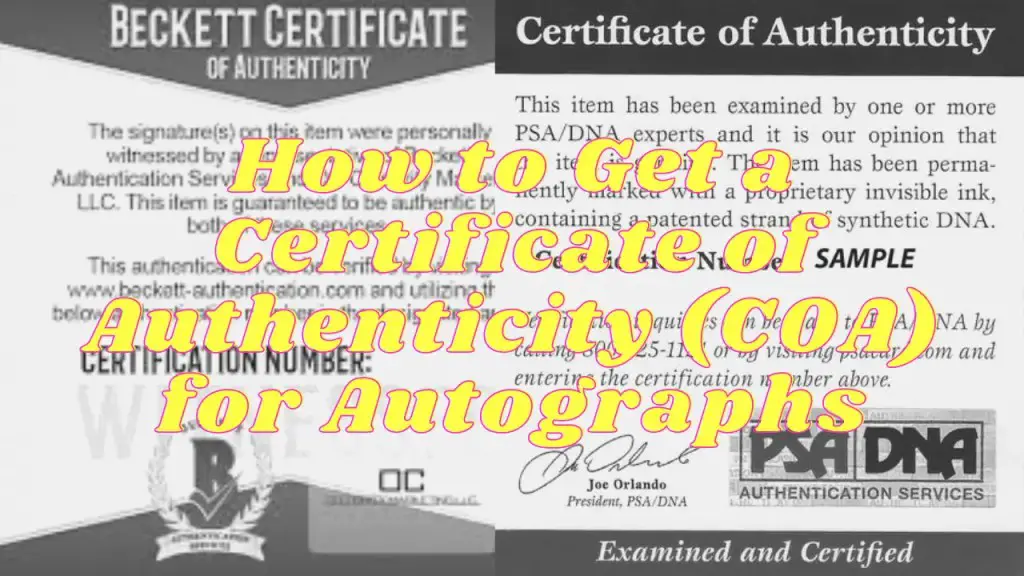When it comes to autographs, authenticity is everything! Regardless of if you are buying or selling, knowing that an autograph is real should always be your primary concern. The industry standard for determining if an autograph is real or fake is the certificate of authenticity (COA). But just like autographs themselves, COAs can be a minefield. Disreputable vendors willfully flood the market with certificates for autographs they know to be fake.
This article will help you navigate the troubled waters of autograph collecting. You will learn essential tips for enjoying the hobby. These include: who the reputable authenticators are in the industry, the different kinds of COAs on the market, and the common mistakes that plague newcomers. In the end, you’ll be able to buy autographs with confidence and avoid costly mistakes. That’s because common pitfalls separate newcomers to the hobby from their hard-earned money time and time again.
Table of contents
What is a Certificate of Authenticity?
A Certificate of Authenticity is proof that an expert assessed an autograph and found it to be genuine. COAs come in many forms. The simplest would be a serialized sticker on the signed item. They also come in the form of full letters which describe the authenticator’s reasons for making their determination of authenticity. However, a COA can sometimes be more than just the representation of an authenticator’s opinion. First-party COAs are a good example of this. Below you can see the differences between what qualifies as first-party, second-party, and vendor COAs.
First-Party COAs
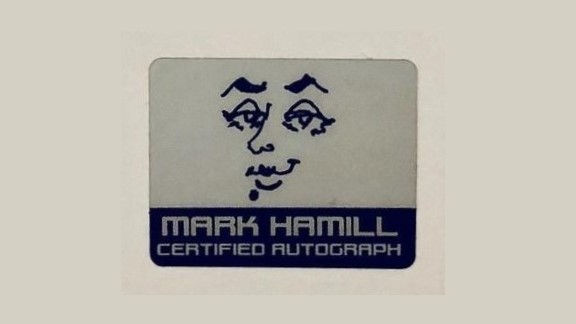
First-party authentications are provided by a signer at the time of signing and are essentially ironclad guarantees of authenticity. When doing private signings or appearing at conventions, celebrities like Mark Hamill will offer unique COAs. These certificates come as an add-on available for purchase by fans who want proof of authenticity.
Third-Party COAs
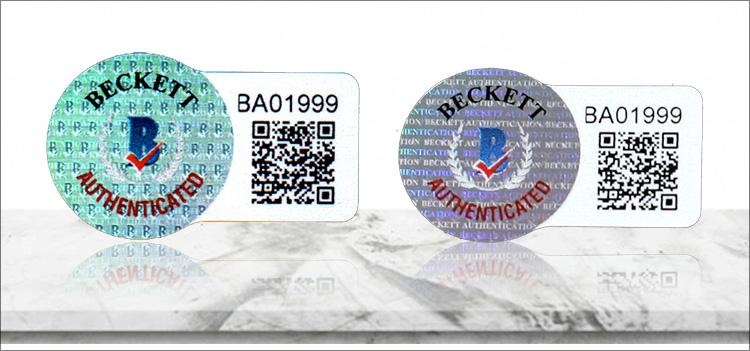
A third-party authentication company has a staff of in-house autograph authenticators. They take an autograph and analyze it. They ensure that everything from the ink to the pen strokes are accurate. Authenticators do this by checking the signature style matches with known examples of genuine autographs. However, these services are only as good as their authenticators. Naturally, a select few companies have emerged as the industry leaders: Beckett, PSA/DNA, JSA, and SWAU (formerly Star Wars Autograph Universe).
Because third-party COAs from reputable companies come with the backing of an expert opinion, you can be confident in your purchase if it’s attached to an autograph. However, third-party authentications are still not guaranteed in the same way that first-party ones are. Still, they carry a high level of trust, unlike many vendor COAs
Vendor COAs
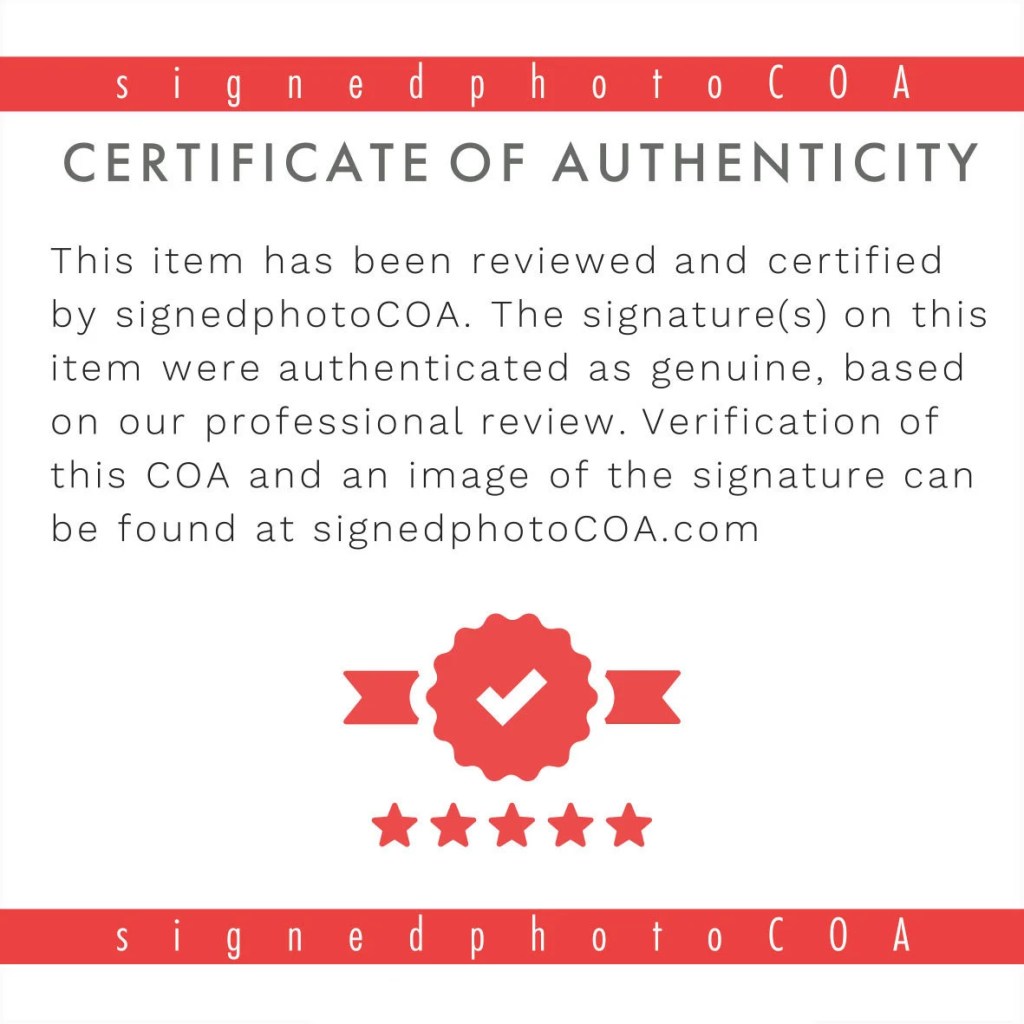
This is where certificates of authenticity can get a bad name. You can think of vendor COAs as certificates produced by the vendor for the item they are selling. You can see the conflict of interest here. These are commonly seen on eBay where each seller will produce their own proprietary COA. With these, there should be no expectation that the signature was at all reviewed by a qualified expert. They simply serve the purpose of putting the concerns of uneducated autograph buyers at ease. Therefore, if it doesn’t come from the signer themselves or a reputable third-party authentication company then a COA often isn’t worth the paper it’s printed on.
How are Autographs Authenticated?
There are many different autograph authentication companies, but the process of determining if an autograph is real or fake is the same across the board. First, authenticators maintain their own proprietary databases filled with known examples of authentic signatures. They use their databases as a reference to make sure that the autograph in question actually matches the signature style of the signer. Secondly, they look at how the autograph was signed. For example, a signature that has been traced slowly will look much different from one signed quickly. That’s thanks to how ink is laid down differently by a pen when it is writing at different speeds.
Another factor that can help authenticators determine authenticity is by making sure that it is period appropriate. Take for example an autograph from George Washington signed in ballpoint pen. Such a thing would not be possible. Given that Washington died in 1799 and the ballpoint pen wasn’t invented until 1888, he wouldn’t be able to sign with that kind of pen.
The signed item itself can also offer clues to an autograph’s authenticity. Let’s say you’re looking for an autograph from the late Carrie Fisher who played Princess Leia in Star Wars. Thanks to archival footage, she appeared in Star Wars: Episode IX – The Rise of Skywalker (2019) . Therefore, a poster from that film signed by her should raise big red flags! As she died two years prior to the release of the film, it would be impossible for her to sign an Episode IX poster. Nevertheless, you can still find them on eBay from time to time.
Types of Certificates of Authenticity
Autograph authentication companies have a lot of different names to describe very similar services. Regardless, you can break down the kinds of COAs into three main categories, standard and witnessed certifications, and quick opinions.
Standard Autograph Certifications
When an existing autograph is authenticated by a third-party company, they issue a COA. It serves as proof that an expert found the signature to be authentic. While it is an expert opinion, authenticators are not infallible. Therefore, even when a COA comes from a trusted company, it’s still opinion based. There is never 100% certainty of authentication with this kind of certification.
Witnessed Autographs Signed in the Presence of an Authenticator
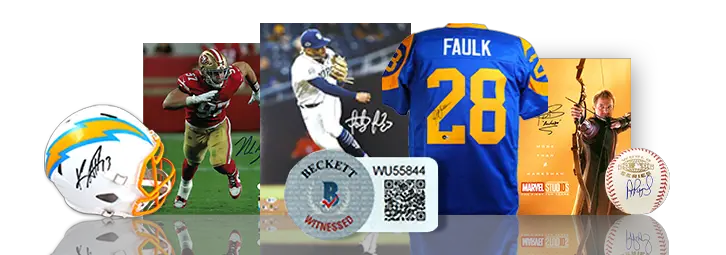
If you want solid proof that an autograph is authentic, then you need to have a COA that attests to the fact that the signature in question was signed in the presence of an authenticator. Many companies offer special COAs for signings that are personally witnessed by their representatives. Some examples of companies that provide this service are:
CGC – Signature Series
JSA – The Witnessed Protection Program (WPP)
Beckett – Witness Certification
Virtual Autograph Authenticity Opinions
Need to verify an autograph before purchasing it? Don’t have months to wait for a standard COA and need authentication in days? Are you okay with a lower level of certainty in exchange for cost and expediency? If you answer yes to these questions, then virtual autograph authentication is the right kind of service for you.
Virtual autograph authentications offer collectors a way to get a quick opinion on an autograph’s authenticity. All you need is a photo of the signature. This is ideal if you want to screen an autograph on eBay before buying. It’s also useful if you simply don’t have time to wait for full authentication or if you don’t physically have the autograph for submittal. By sending in just a picture, authenticators can tell with a fair degree of certainty whether or not an autograph is authentic. In the end, customers will get an opinion back, not a COA, that states whether or not the autograph is likely or unlikely to pass full authentication. If a determination can’t be made with a picture alone, then your money will be refunded.
Virtual autograph authentications can’t certify authenticity in the same way that a COA can. That’s because the authenticators can’t physically inspect the autograph. Consequently, they can’t do a thorough examination of the ink and how it lays on the material. For example, while a real signature may look good in a photo, so too might a picture of a high-quality photocopy. Even though the two would be easy to tell apart in person, it can be difficult to pick up some details with just a photo given the static nature of 2D images.
Examples of virtual autograph authentication services are:
Beckett – Signature Review
PSA/DNA – Quick Opinion
SWAU – Autograph Verification
Is it worth getting an autograph authenticated?
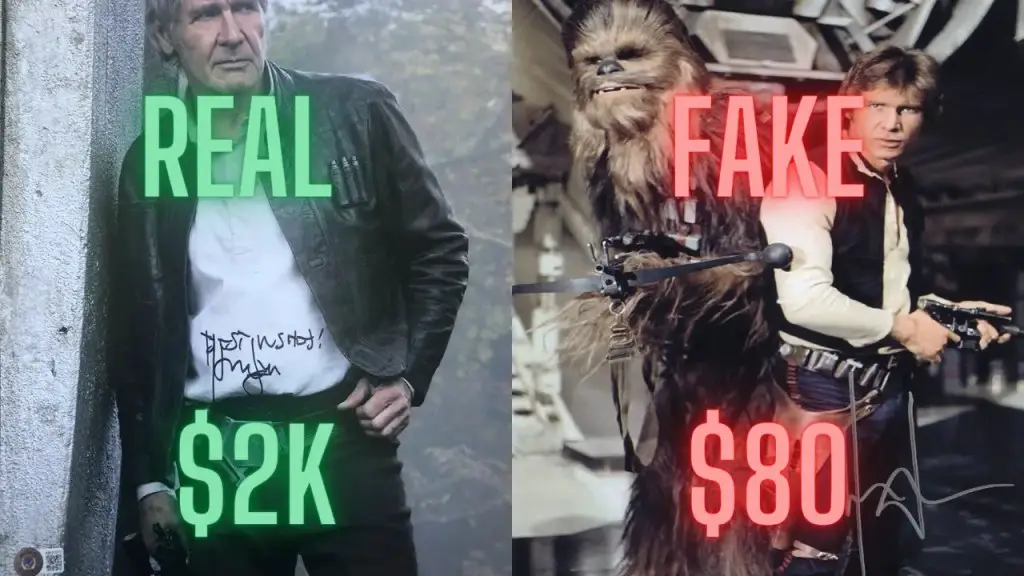
Getting an autograph authenticated is absolutely worth it. You have to understand that the secondary autograph market is so flooded with fakes. Therefore, when it comes to selling autographs, it is almost a necessity to have them authenticated if you want to get close to their maximum potential value. You can see for yourself by going to eBay and searching the sold listings. For example, the query “Harrison Ford -JSA -PSA -Beckett -SWAU” will filter out most of the certified autographs. If you know anything about Harrison Ford’s signature, then the first thing you will notice is that nearly all of the results are fake. The second thing is that what should be $800+ autographs are going for $100 or far less. So if you are thinking of buying something with no COA, you should ask yourself “why doesn’t it have one?”
Many buyers simply don’t trust an autograph that doesn’t come with a COA from a reputable company. There is a big price difference between cheap uncertified autographs and real ones with a COA. Those that come with a cert are much more likely to break the $1,000 mark and achieve their full potential value when sold.
How to Know if a Certificate of Authenticity is Real
Just like autographs, COAs can be faked. To know if a certificate of authenticity is real, check with the company that issued it. You can easily do so by referencing the certificate’s unique serial number. Simply go to their site and type in the serial number. The number should bring up some basic information about the autograph it’s associated with. At a minimum, it will say whose autograph it is. Ideally, it will also have a photo of the actual signed item.
Certificate of Authenticity FAQ
The leaders in autograph authentication are Beckett, PSA/DNA , JSA, and SWAU.
The price to authenticate an autograph begins at $10 if done as an add-on to private signings but can cost upwards of $100 for premium services like CGC’s Signature Series. Most authentication companies charge a variable rate depending on the exact service being provided and whose autograph it is that’s being certified.
Autograph authenticators don’t usually have brick-and-mortar locations to visit. However, there is an easy way to get your autographs authenticated in person at a location near you. Most metropolitan areas host comic and pop culture conventions where autograph authenticators are often present. JSA, Beckett, and CGC all set up booths at cons where you can bring in your autographs for authentication.
While autograph COA is one of the newest authenticators in the industry, collectors trust it and consider it to be a legitimate service. The company was founded by Justin Steffman, who is also the founder of the popular autograph-collecting Facebook group RACC.
You can get a COA for any kind of autograph. It doesn’t matter what profession the signer is in or what kind of item is signed. COAs are given to baseballs, footballs, and all sorts of signed apparel for athletes, but obscure movie props can also be signed and certified. The possibilities are endless!
